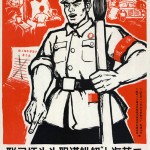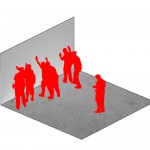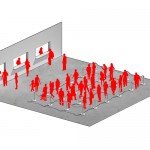
Hans-Jürgen Krahl: From Critical to Revolutionary Theory
Hans-Jürgen Krahl died in a car crash in 1970, at the age of twenty-seven. By that time he had weathered the rise and decline of the Socialist German Student Union (Sozialistischer Deutscher Studentenbund, or SDS), among whose ranks he was, arguably, both the most sophisticated theorist and, after Rudi Dutschke, the most incendiary orator. The SDS had been founded shortly after World War II as the youth wing of the Social Democratic Party (SDP) of Germany. As the latter moved towards the center, however, the SDS radicalized, eventually leading to expulsion from its parent organization in 1961. It would soon become the most important student group in Germany, even as its official policy shifted further towards revolutionary Marxism.
 Viewpoint Magazine
Viewpoint Magazine







